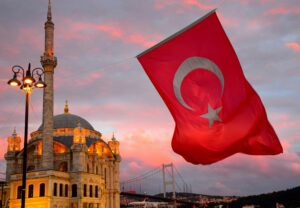
Central Asian ministers converge in Rome to boost economic and security cooperation
In a significant diplomatic gathering, the foreign ministers of Kazakhstan, Kyrgyzstan, Tajikistan, Turkmenistan, and Uzbekistan convened in Rome for consultations aimed at strengthening regional cooperation and addressing common challenges. This meeting, held in early May 2024, underscores the ongoing efforts to foster unity and collaboration among Central Asian nations while engaging with European partners.
The discussions in Rome were part of a broader initiative to enhance political, economic, and security ties within the region and with the European Union. The consultations followed the 19th EU-Central Asia Ministerial Meeting held in October 2023, where foreign ministers from the region and EU officials discussed deepening their strategic partnership. These meetings highlight the growing importance of Central Asia on the global stage and the EU’s interest in the region as a vital partner in various spheres, including trade, energy, and security.
One of the central themes of the Rome consultations was the advancement of regional connectivity projects. The foreign ministers discussed ways to improve transportation links and trade routes that would facilitate better economic integration both within Central Asia and with external markets. This includes the modernization of infrastructure and the development of new trade corridors, which are crucial for boosting economic growth and stability in the region.
Energy cooperation was another critical topic on the agenda. The Central Asian countries, rich in natural resources, are looking to optimize their energy production and export potential. The discussions in Rome aimed at finding collaborative approaches to energy security and sustainability, which are essential for the long-term development of the region. The ministers explored opportunities for joint investments in renewable energy projects and enhancing the efficiency of existing energy resources.
Security concerns, particularly related to terrorism, border security, and drug trafficking, were also a focal point of the consultations. The foreign ministers emphasized the need for a coordinated approach to tackle these challenges, with a special focus on enhancing information sharing and joint operations. The stability of Afghanistan was highlighted as a critical factor influencing regional security, prompting discussions on how to support peace and reconstruction efforts in the war-torn country.
The Rome consultations further cemented the strategic importance of the relationship between Central Asia and the European Union. EU officials reiterated their commitment to supporting the region’s development through various initiatives, including financial aid, technical assistance, and capacity-building programs. The EU’s engagement is seen as a balancing factor against other major influences in the region, such as China and Russia.
The outcomes of the Rome consultations are expected to lay the groundwork for more robust and comprehensive cooperation frameworks. The foreign ministers agreed to hold regular meetings to monitor the progress of their initiatives and to address emerging issues promptly. The spirit of collaboration and mutual support demonstrated in Rome sets a positive tone for future interactions and underscores the potential for Central Asia to become a more cohesive and influential region on the global stage.

